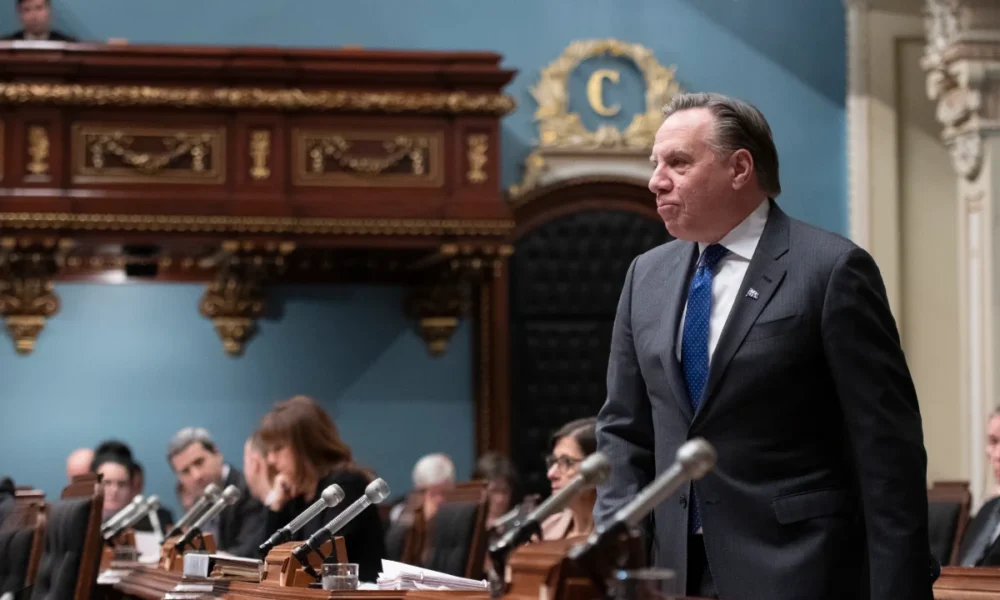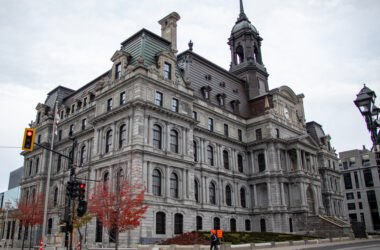This article was last updated at 12 p.m. on Oct. 4.
Voters streamed into polling stations to cast ballots in Quebec’s provincial election on Oct. 3. Polls closed at 8 p.m., concluding five weeks of campaigning dominated by issues such as language and minority rights, Indigenous issues and separatism, and housing and healthcare. The McGill Tribune followed the results as they rolled in to explain what they mean for the McGill community and beyond.
The Coalition Avenir Québec (CAQ), led by incumbent Premier François Legault, surpassed the 63 seats needed to win a majority government and will lead the Quebec National Assembly for the next four years. The Liberal Party of Quebec (PLQ) held on to their status as the official opposition party. Québec solidaire (QS) secured 11 seats, or 15.42 per cent of the popular vote, which means they narrowly missed the threshold to maintain official party status. Conservative Party of Québec (PCQ) and Parti Québécois (PQ), however, failed to achieve official party status. The newly-formed Bloc Montréal, led by McGill alumnus Balarama Holness, BCL/JD ‘20, also failed to secure a seat in any of Montreal’s ridings despite running on a platform based on representing the city’s interests.
Daniel Béland, McGill professor and director of the McGill Institute for the Study of Canada (MISC), explained what a CAQ reelection means in a statement to the Tribune.
“The CAQ has an even stronger majority of seats than in 2018 and the opposition is considerably weaker […] in terms of number of seats,” Béland wrote. “This is likely to mean ‘more of the same’ for the next four years in terms of both policy and politics. The opposition might struggle to keep this strong government accountable and social movements might have to organize to offset this.”
Voter turnout was similar to the last provincial election in 2018, with around 68 per cent of the eligible population casting a ballot. Béland noted that the statistic was better than Ontario’s provincial election in June 2022, which saw its lowest voter turnout in history at around 43 per cent. He added that “analysis will be necessary to know turnout among university students but on-campus voting like we saw at McGill this year is a step in the right direction.”
Reflecting on the election results in an interview with the Tribune, Maxence Regaudie, BEng ‘18, expressed conflicting emotions about the CAQ’s victory. He specifically took issue with Legault’s nationalist language law, Bill 96.
“Economically speaking, [the CAQ] have been doing great things so far. They want to invest in technology, and they actually get shit done,” Regaudie said. “Socially speaking, I just cannot relate to [the CAQ’s] idea of what they think Quebec should be. I do not think it is the right approach. I think pushing any sort of bill against English and trying to villainize English people, it just feels wrong.”
Jennifer Maccarone, incumbent Liberal Party member of the National Assembly (MNA), was elected for the Westmount-Saint-Louis riding, where McGill is situated. This will mark the second term in office for Maccarone, who won the riding’s seat over Jacques Chagnon in 2018, who had held the position for 33 years. Maccarone made her debut in provincial politics as the President of the Quebec English School Boards Association (QESBA) in 2015. Her platform focuses on access to education and she opposes Bill 96. Maccarone has also pledged to follow her party’s platform to address the housing crisis, which she recognizes as a pressing issue for students and young people.








